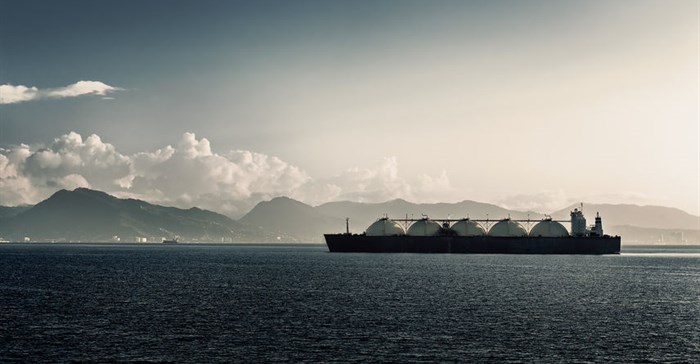Liquefied natural gas (LNG) is playing a huge role in the transition to a low-carbon world but it is also rapidly becoming a global commodity as its price crumbles on the open market...
The problem for the industry is a structural change that may lead to even lower natural gas prices in the future. In a new analysis Navigating the transformation of the gas market, Strategy&, PwC’s strategy consulting business, predicts four forces that will weigh heavily on gas prices going forward making the market much more volatile and risky:
- The thirst for natural gas will continue rising. Although some slowdown in demand growth is expected as global economic conditions soften, particularly in China, LNG orders are not going to decline anytime soon. The biggest consumption gains are expected to come from Asia and Africa. A large part of the renewed interest in natural gas is driven by global environmental initiatives like the 2015 Paris Climate Conference. Because natural gas emits about 50% less CO₂ gas than coal and about 30% less than oil, it is viewed as an attractive transition fuel, a placeholder until renewable options are perfected and become more cost-effective.
- Oil prices will continue to have an impact. Gas prices will be influenced by oil prices for several years. If oil prices stay low, so will gas prices. Existing contracts linked to oil will have to be worked through first, but even if oil and gas are delinked after these contracts are concluded, inexpensive oil could psychologically have a dampening effect on all energy prices.
- LNG oversupply will exacerbate commoditisation. The global LNG market is about to become inundated with new suppliers. A supply glut is forecast to continue and oversupply will force sellers to seek alternative markets and share more risk with traders hoping to exploit arbitrage opportunities. Some producers will likely cut oil prices to defend market share against LNG imports.
- Increased trading volumes on natural gas hubs. The presence of LNG hubs and the increase in available natural gas supplies have attracted new buyers from afar as the Middle East and North Africa – among them, Jordan, Pakistan, and Egypt. This evolution in global trading is producing more natural liquidity, price transparency, longer-term forward contracts, and gas-on-gas competition, which ultimately reduces contractual risk and facilitate hedging. By globalising the LNG market, these hubs could increase commoditisation.
Creating a gas infrastructure
The analysis also offers some strategic options and practical considerations for natural gas players – on the buy and sell sides – to take into account.
“LNG is a buyer’s market right now, especially with a glut of natural gas on the market. Buyers must negotiate the best deal possible and take advantage of lower prices to get gas into South Africa at the lowest prices seen in many years. The South African Department of Energy recently issued a request for information (RFI) regarding possible developments in a proposed gas-to-power programme.”
“It is expected that this initiative will not only establish the delivery of the 3,726MW of electricity capacity set out in the ministerial determinations but will also act as a catalyst to developing a natural gas industry in South Africa and provide the gas infrastructure which will be required when we have our own gas,” says Chris Bredenhann, PwC Africa oil and gas industry leader.
Consider reducing cost
For many LNG providers, this is a particularly difficult time. The collapse in natural gas prices has been painful; even some of the larger international oil companies counted on gas and LNG for a large portion of their profits.
Most importantly, companies will need to consider reducing costs. The natural gas sector has already commenced focusing on capital expenditure reduction. Global investment levels in upstream gas are down by almost 40% from 2013 to 2016, according to the analysis.
Mozambique projects
“In Africa, if the Mozambique LNG developments are to go ahead, the players in that sector will have to carefully look at the costs and defend their positions with buyers of their gas and renegotiations could have a detrimental impact,” adds Bredenhann.
There have been significant natural gas discoveries in Mozambique’s northern offshore Rovuma basin since 2010 that have the ability to radically transform the country into one of the world’s largest LNG exporters. However, the slump in crude prices had caused a number of energy giants to delay projects, and this had given rise to concerns that Mozambique’s LNG developments could be held back.
“Given the pivotal role gas will play in the transition to a low-carbon world, combined with the tide of commoditisation that is sweeping the sector, companies must prepare for change. In a future where risk levels, liquidity, and price volatility will increase, the certainties underpinning long-term supply contracts will ebb away. Lower margins and uncertain trading outcomes will replace them,” concludes Bredenhann.






































